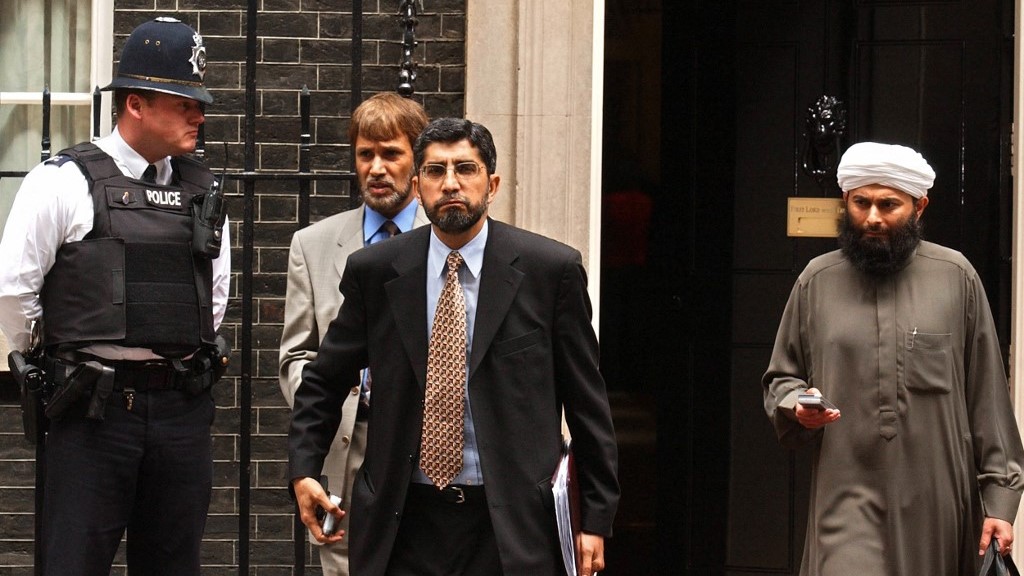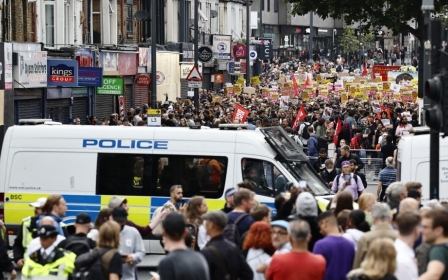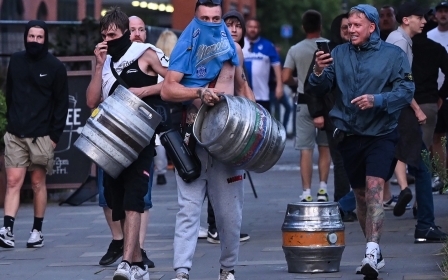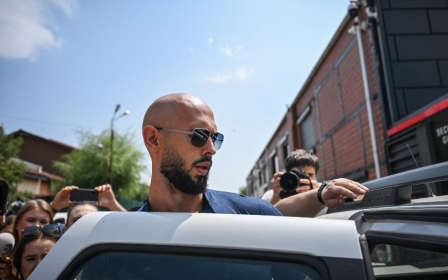Exclusive: UK government ignored Muslim Council of Britain during far-right riots
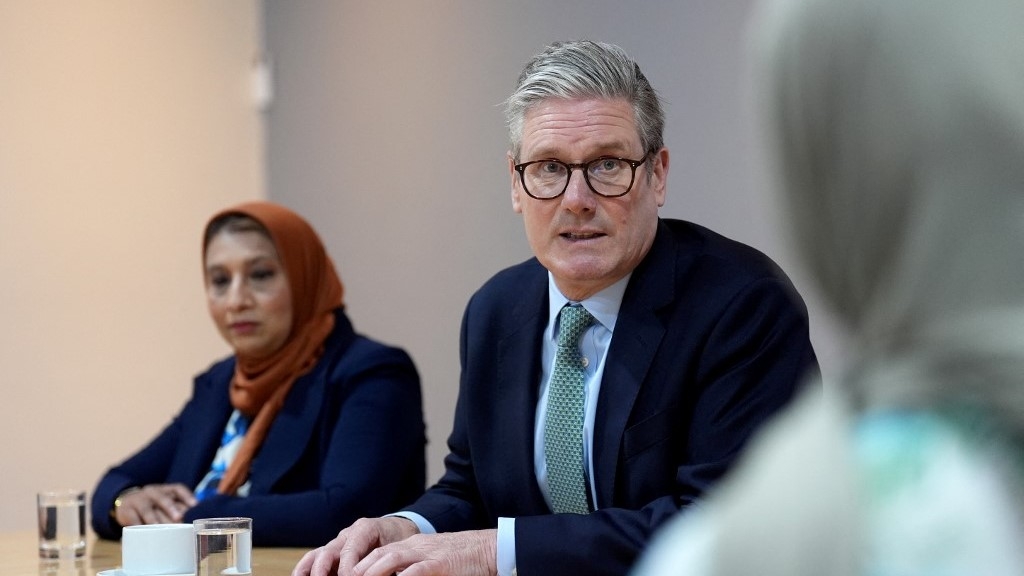
The UK government has ignored communications from the country’s largest body representing British Muslims since far-right riots began last Tuesday, Middle East Eye can reveal.
The Muslim Council of Britain (MCB), established in 1997, is an umbrella organisation with over 500 members - including mosques, schools, local and county councils, professional networks and advocacy groups.
Multiple sources in the MCB told MEE that the government has not spoken to the organisation at all during the wave of racially fuelled and Islamophobic rioting across the country.
The trigger for the riots, which began on Tuesday 30 July, was online misinformation following a stabbing attack that killed three children in the northern English town of Southport on 29 July.
False claims spread rapidly online that the attacker was a Muslim and illegal immigrant.
New MEE newsletter: Jerusalem Dispatch
Sign up to get the latest insights and analysis on Israel-Palestine, alongside Turkey Unpacked and other MEE newsletters
On 31 July, after a mob attack on a mosque in Southport, the MCB said it had written to the home secretary “seeking reassurance for the protection of mosques and communities”.
MEE’s sources in the MCB said that the organisation has not had any communication in response.
The Home Office referred MEE to its introduction of emergency security for mosques nationwide, which it announced on 4 August.
The Cabinet Office referred MEE to a statement by Labour’s communities minister, Alex Morris, on Friday 2 August which said that “there are no plans for Ministers to meet with the Muslim Council of Britain."
Government engagement with civil society organisations typically encompasses more than ministerial meetings.
Unlike the UK’s Labour government, the Sinn Fein-led devolved administration in Northern Ireland has engaged with the MCB. First Minister Michelle O’Neill met MCB Secretary-General Zara Mohammed on Thursday.
Our community will stand strong and united against racism, hate, and Islamophobia.
— Michelle O’Neill (@moneillsf) August 8, 2024
Today, I met with the Muslim Council of Britain to discuss how we can work together to build an inclusive future.
I will continue to work with everyone in our community to make this a place where… pic.twitter.com/iTOYxoEDRO
On Wednesday, the MCB also held a community briefing with the London Fire Brigade on dealing with the riots.
Firmer line
One MCB source, who asked to remain anonymous because of the sensitive nature of the issue, felt the organisation should take a firmer line with the government and its response to the riots.
“The MCB needs to demand publicly that the government meets with the largest representative body of Muslim organisations in the UK,” the source said.
“If this had happened to any other community, the government would rush to meet with that leadership.”
Another source told MEE: “We are the largest representative Muslim group. We need to be open with the community and our affiliates.”
“If we don’t show real leadership with the community now, when will we do so?” it added.
Prime Minister Keir Starmer visited a mosque in Solihull in the West Midlands on Thursday, the first such visit since he took office in July and since the rioting started.
On 12 July, MEE revealed that Labour is supporting the creation of a new Muslim leadership group intended to become the primary point of engagement between Starmer’s government and British Muslim communities.
This new network appears to pose a direct challenge to the MCB’s claims to leadership.
Over its history, MCB leaders have worked with civil servants and all major political parties. They have appeared at events alongside members of the royal family. They have also collaborated with the Church of England and worked on initiatives with the National Health Service.
The organisation also has a long record of supporting Muslim involvement in the UK’s armed forces.
But since 2021, the MCB has found itself sidelined by the government, with Labour appearing to be continuing the previous Conservative government’s policy.
'If this had happened to any other community, the government would rush to meet with that leadership'
- MCB source
The MCB was briefly boycotted by Gordon Brown’s Labour government in 2009 after the organisation's then-deputy secretary general signed a declaration in support of Palestinians’ right of resistance following Israel's three-week war on Gaza known as Operation Cast Lead.
Labour restored ties before its defeat in the 2010 general election, and MCB officials held a number of meetings with Liberal Democrat ministers during the Conservative-led coalition government that followed until 2015. However, Conservative Party ministers refused to meet MCB officials.
Civil servants continued to meet with the MCB until March 2020, when the organisation produced a dossier outlining what it said was evidence of Islamophobia against more than 300 individuals, including Conservative MPs, councillors, party members and special advisers in 10 Downing Street.
Shortly afterwards, civil servants broke off relations with the organisation. Robert Jenrick, then communities secretary, sent a letter to government departments saying they were banned from engaging with the MCB.
However, the MCB has continued to work with some official institutions.
Middle East Eye delivers independent and unrivalled coverage and analysis of the Middle East, North Africa and beyond. To learn more about republishing this content and the associated fees, please fill out this form. More about MEE can be found here.


